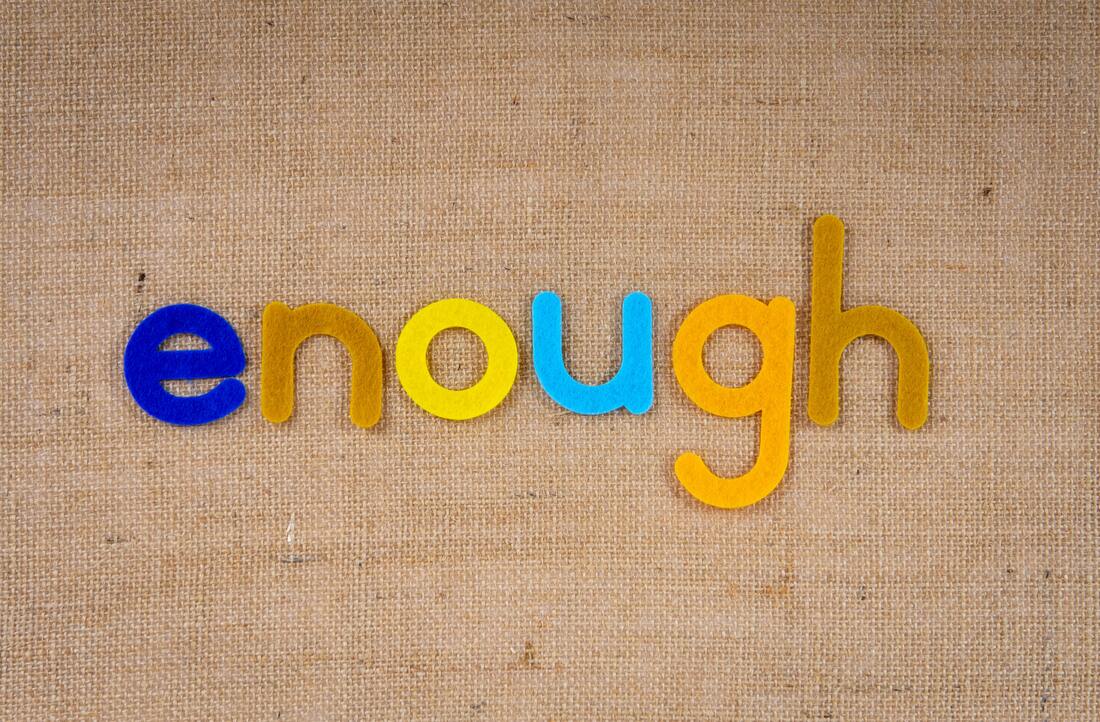|
A few years back I worked with a client, let’s call him Eric, who was the COO of a medium-sized, established company. I was inspired by my work with him, to write this article about how our thinking / mindset / perspective can trip us up.
Everybody has set ways of thinking about things. This is true for your private life as well as in your working environment. Where your perspective comes from and what it is based on comes usually from past experiences. By past, I mean it can come from way back, or even recent bad experiences with the last boss or partner or life in general. What matters now, in the present moment, is the awareness that these experiences exist, might be driving your behaviour and give you your perspective on things. This can form beliefs, biases, judgements and any, negative thoughts. If you are ready to start changing the results you are getting then these tips can help you challenge your thoughts. After all, Einstein says: “Insanity is doing the same thing over and over again expecting different results.”
0 Comments
The end of the year is nigh! And with it comes a lot of busy work—some fun, some not so fun. Whether it’s personal or professional, the end of the year is about finishing up, taking stock, and making plans. And that’s all before we get into the crush of the holidays. Our To-Do lists can be very long this time of year. What we often leave off our list is taking time for ourselves. Yet, the crazier life becomes, the more we need to give ourselves space to just be. We need to spend time on our self-care. You have probably heard the term self-care tossed around, but what is it exactly? It is any activity that we deliberately do to take care of ourselves—mentally, emotionally, and physically. Self-care is time or an activity that builds us up rather than takes away our energy. It is a way to recenter body and mind when we feel scattered and overwhelmed. Which of us doesn’t want to have a good life? Who doesn’t want to be enough? With a lovely house and garden, sweet children, a loving spouse, who come together for breakfast, lunch, and dinner. A life filled with good friends who celebrate over an elaborate meal and extended family that come together often with smiles and hugs. A life with a rewarding job that appreciates your work and brings out your best. While these scenarios might be things that people dream about, they are scenes from stock photos, advertising campaigns, lifestyle shows, and social media influencers. Yet they inspire us to want to be perfect, to have perfect lives. They prey on our feelings that we are not enough. Then, for many of us, the drive to have a perfect life overwhelms. In her book, End the Struggle and Dance With Life, Susan called the drive to always be perfect an addiction. Always having to be the best, always going above and beyond, always having to prove yourself are just ways of trying to show the world, and yourself, that you are good enough. Being a perfectionist, while it might look as if everything is fantastic, takes its toll on our health and our relationships. It can also hold us back from new opportunities. All those images and videos we see of perfect-looking people living perfect lives only has the echo of truth in them. What we never see in those images is the mess behind the camera. The other people working behind those scenes to make the illusion seem real. So while those images make us feel as if we are less than perfect, they only represent something superficially “perfect.” The reason our addiction to perfection can be so devastating is that we believe our self-worth is measured by our performance. But since no one is perfect, it is impossible to attain self-worth through perfection. Trying to be perfect in everything we do is only a means to feel as if we are good enough. In the Oxford Dictionary, the definition of a “control freak” is “a person who feels an obsessive need to exercise control over themselves and others and to take command of any situation.” The Merriam Webster dictionary says that a control freak is “a person whose behaviour indicates a powerful need to control people or circumstances in everyday matters.”
This personality trait could stem from a chaotic childhood, alcoholic parents, abusive behaviour, or early abandonment. Such experiences can make it hard for people to trust or relinquish control to others. The fear of falling apart pushes them to control what they can. As their emotions are all over the place, they feel loss of control. For this reason control freaks will micromanage whatever they can with the belief that this makes them strong. People who feel out of control tend to become controllers. I imagine each and every one of us is a control freak, or takes on the behaviour of such, at some point or another. The fear of failure is what makes it so important to control everything when you do not trust anybody else to do a good job. One difficult aspect of being around a control freak is accepting that they do not understand how their behaviour and choice of words affect the people around them. Another difficult aspect is not to take it personally. This behaviour comes from deep inside and the person is actually quite unaware of being a control freak. Remember that life is complicated and can be more difficult at times. Sometimes it feels like a rollercoaster ride! Cleaning your life up, getting rid of the deadwood, and finding your place of balance forms a wonderful grounding foundation to build on. Feeling you are in balance is the best, most powerful place to work from and a place to come back to when things are difficult. Being familiar with the feeling of being in balance allows you to know exactly what you want to get back to. This also offers you the goal to strive for. Life will always contain difficult times. Trusting yourself to handle these difficult times gives you the confidence to deal with them.
If your life feels like it is a mess and you are ready to take some action, there are many different approaches to consider. Support from a professional or wise friend, meditation, spiritual beliefs, sometimes even just taking a “time out” holiday is incredibly beneficial. Find the option that suits your personality and lifestyle best. You are looking to be more grounded in the present, calmer, which will offer more clarity. You are more likely to stay on track with making the necessary changes with a realistic clear mind. To get yourself on track to feeling better and living the kind of life you wish for, ask yourself: Why you don’t learn from failure
How many times have you heard that failure is a “teachable moment?” That you learn more from failure than success? In a 2017 commencement speech, U.S. Supreme Court Chief Justice John Roberts actually wished the graduating class “bad luck,” so they’d have something to learn from. Yet my colleague Ayelet Fishbach and I find that failure has the opposite effect: It thwarts learning. In a recent study, we presented over 300 telemarketers with a quiz. The telemarketers answered 10 questions on customer service, each with two possible responses (i.e., “How many dollars do U.S. companies spend on customer service each year?” The answer choices: 60 billion or 90 billion). One of the hardest jobs a leader has is giving corrective feedback to someone whose behavior is difficult, aka "the difficult employee." This person's behavior is adversely affecting the team, not just you. You've tried all the soft approaches like ignoring the behavior, making a joke about it, dropping hints -- and still he persists.
Finally the time has come to deal with this head on. You need to give him straight feedback. Most people would rather scratch their fingernails down a chalkboard than do that, but, hey, you are the leader, so it's your job. You bravely say yes, but wonder privately if, by talking to him straight, you're going to make things even worse. What if you could give this feedback to him in a way that would solve the problem and even enhance your working relationship with him? What if he would actually thank you at the end of the conversation, grateful that you cared enough to talk to him about it? This is possible! Here are 5 steps to follow in order to to make the biggest difference possible. You might consider experimenting with these steps also when the stakes are lower, BEFORE an employee get labeled as "difficult." 1. Prepare for the conversation ahead of time.
By Sweta Bothra, Lead Therapist at InnerHour, a Mental Health Platform
Photo by Markus Spiske on Unsplash What kind of mindset do you have? Is it one that drives you to become the best version of yourself, even when times get tough? A mindset can be defined as the way in which a person perceives themselves and the world around them. Your mindset can hugely impact your behaviours, ideas and choices you make when it comes to your goals. It can even affect your work, relationship with others and daily routine. Ultimately, the kind of mindset you have defines you who are and who you can become. There are two types of mindsets – fixed and growth. Let’s look at each in a little more detail. By Susan Begeman Steiner
Honoring emotions is an important element in achieving Emotional Intelligence. And your moods – both “good” and “bad” -- are an important part of your emotional being. Learning to flow with your moods and be honest about them gives you more individual self-expression and even self-confidence. Have you noticed that things go more smoothly when you are in the mood to do them? Traffic lights change to green and you find a great parking place when you’re in a good mood. And when you’re in a bad mood, seems like almost everything goes wrong? Moods, good and bad, come in their own timing, so practically speaking, how can you capitalize on the good moods and mitigate the bad moods? Good moods are easy. Whenever possible, do things when you're in the mood to do them. Then you hit the green lights or, if you don't, you're not as likely to get upset about it. But what about the bad moods, when you just aren't in the mood to do something you have to do? How can you get yourself in the mood to enjoy what you’re going to do? Here are 3 keys that can help: Deep Patel - ENTREPRENEUR LEADERSHIP NETWORK VIP, Serial Entrepreneur
Self-sabotage occurs when your logical, conscious mind (the side of you that says you need to eat healthily and save money) is at odds with your subconscious mind (the side of you that stress-eats chocolate and goes on online shopping binges). The latter is your anti-self -- that critical inner voice that seems to hold you back and sabotage your efforts. Self-sabotage involves behaviors or thoughts that keep you away from what you desire most in life. It’s that internal sentiment gnawing at us, saying “you can’t do this.” This is really your subconscious trying to protect you, prevent pain and deal with deep-seated fear. But the result of self-sabotage is that we hesitate instead of seizing new challenges. We forgo our dreams and goals. In the end, we know we missed out, but we don’t understand why. So what can we do to stop the self-limiting behaviors? Here are eight steps you can start taking immediately to stop self-sabotaging your success. By Marcel Schwantes
In 2016, the World Economic Forum released its fascinating Future of Jobs Report, where they asked chief human resources officers from global companies what they saw as the top 10 job skills required for workers to thrive by 2020. One skill projected for success in 2020 that didn’t even crack the top 10 list in 2015 was — you guessed it — emotional intelligence. According to many experts in the field, emotional intelligence has become an important predictor of job success for nearly two decades, even surpassing technical ability. In one noteworthy CareerBuilder survey of more than 2,600 U.S. hiring managers and human resources professionals, it was found that “fifty-nine percent of employers would not hire someone who has a high IQ but low [emotional intelligence].” In fact, 75 percent of survey respondents said they’re more likely to promote someone with high emotional intelligence over someone with high IQ. Companies are placing a high value on workers with emotional intelligence for several reasons. In my own studies and observations over the years as a leadership coach, here are six that really stand out.... Set alarms to stand up and stretch “I find it helpful to build exercise into your routine. I have an Apple Watch that tells me when I have been sitting too long without a break. I make it a point to use those alarms to take short breaks where I tend to stretch and exercise.” —Phil La Duke, business consultant and author, Detroit, MI Join an online yoga class “The yoga studios I go to for classes are all closed, so I have shifted to online classes. One site with pre-recorded free yoga classes that I’ve been loving is Down Under Yoga. I plan to do the classes out on the deck when we have a warm day!” —Cindy J., executive search and HR consultant, Boston, MA Have a solo dance party “I’m starting each morning with a solo dance party to begin my day on a positive note and to get the stress-relieving endorphins flowing. It only takes five minutes and it really elevates my mood, and makes me laugh. I’ve been especially loving Lady Gaga’s new song, and pretending that I’m dancing at her concert.” —Lisa Abramson, executive coach, Menlo Park, CA Use household items as weights “As someone who is used to going to the gym every morning, I’ve now had to improvise. I still wake up early to move my body, and these past couple of days I’ve gotten creative by using a sack of potatoes as weights. I try to wake up and move every single day before work.” —Katie, PR manager, Seville, Spain Put on workout clothes when you wake up “I typically find that if I say I’m going to work out everyday, and then I skip two days, my most likely response is to quit altogether. So instead, I start with something small. For example, for the next four days, I am committing to putting my workout clothes on in the morning. That’s the only requirement. If I do more, that’s great! The end result is that I usually end up actually working out. But starting small works great for those of us who tend to have that all-or-nothing mindset.” —Becky Morrison, executive coach, Ashburn, VA Start the day with a plank hold “I love to start the day with a little fitness challenge by holding a plank. It works out so many areas of the body, and it also benefits your mental health. I suggest starting with a 30-second plank, and then moving your way up to 45 seconds, and then a minute. I do this three times a day!” —Camilla Thompson, well-being coach, Sydney, Australia Try the seven-minute workout app “I always plan at least one break in the morning and in the afternoon to get active, and I use apps like the 7-Minute Workout to get moving and relax. It has helped me move during the day and focus better when I return to my computer.” —Isabelle Bart, marketing director, Irvine, CA Use an at-home spin bike “I keep a routine of indoor-cycling, as I have had a spin bike in my living room for the last few years. A lot of my day time is spent on my laptop with virtual meetings and calls. I try to carve out one hour in the morning when I can do a digital spin class before I start my work. It keeps me grounded, moves my muscles, and relaxes my mind.” —Camillo Pandolfi, consumer insights director, London, UK Walk around during meetings “If I’m on a call that doesn’t require me to use my laptop or webcam, I stand and walk around while I take the call. Similar to walking meetings at the office, taking calls while standing or walking around my home force to take a much-needed screen break. It’s a great way to sneak some additional stretches in throughout the day too!” —Alyssa Swantkoski, executive assistant, Denver, CO MICROSTEP Make sure you move throughout the day. For example, walk around your home (or even around the room) while speaking on the phone. Wear your sneakers “I work from home and I have a pair of clean running shoes that I’ll wear each day around the house. For some reason, I’m more likely to go up and down the stairs, and get up to get water more frequently when I have them on.” —Amanda Holdsworth, PR director, Detroit, MI Use a bicycle desk “Years ago, I bought a bike desk. It helps keep me active throughout a day of meetings. It’s the best $200 I ever spent!” —Amanda DeVlugt, learning professional, Memphis, TN Take your calls standing up “I find it helpful, instead of working sitting down in a chair all day, to try to take my calls standing up and waking around the house. I also stretch at least three times a day. It helps generate serotonin and improves my day.” —Giancarlo Molero, happiness innovator, Miami, FL Carve out 15-minute trampoline breaks “I have a small rebounder trampoline at home, which helps me stay active during the day. I put some fun music on and bounce for fifteen minutes. It helps with lymphatic detoxing, builds muscle, and makes you feel awesome.” —Camilla Thompson, well-being coach, Sydney, Australia Try a workout video with your kids “My daughter, husband, and I work out with weights in the garage and record our time as we compete on the same exercise each week. We also do silly and fun online workout videos, including Richard Simmons and Jane Fonda classics together. Our 13-year-old daughter was mystified when she discovered leg warmers!” —Eve Mayer, author and consultant, Carrollton, TX Do a quick jump rope workout “I work from home a lot, so this is familiar territory for me. One tip I love when it comes to staying active while maintaining social distancing is getting a skipping rope, and doing bursts of skips, either 20 at a time, 50, or 100. Then, do some lunges to recover, and stretch. Repeat three times, and you’ve got yourself a great at-home workout!” —Pollyanna Lenkic, executive coach, Melbourne, Australia A coaching session can help you focus and maintain your goals. Call one of our coaches in switzerland for a free introductory session.We wish you good health, emotional and mental strength during these difficult days.
We are open for business and here to support you with virtual sessions. Contact one of our coaches 'Grin and Bear It' Is Wrong. Here's What Great Leaders Understand About Emotional Intelligence.13/2/2020 Aytekin Tank
Opinions expressed by Entrepreneur contributors are their own.“One of the things that I was told early on is that you should never let them see you sweat,” Ursula Burns once said in an interview. Burns, then-CEO of Xerox, was reflecting on leadership advice she had received over the years. She continued, “I remember hearing that and saying: ‘Oh, my God! I think that they have to see you sweat.’” When I first read that interview, I was a few years into launching JotForm and was still figuring out my leadership style. I had figured that the best leaders were stoic types -- Teflon-strong with impenetrable poker faces. Burns’ words were kind of a revelation. Could emotions be a strength rather than a weakness? In times of stress -- and in the startup world -- those are far from uncommon. Should entrepreneurs share, rather than smother their feelings? Jayson DeMers
We typically think of intelligence in terms of knowledge or cognitive reasoning ability, but there’s another kind of intelligence that’s just as important -- if not more so -- in a business environment. Emotional intelligence refers to someone’s ability to read, feel and respond to emotions, within both himself (or herself) and others. And, yes, that may seem like a phenomenal quality to have when managing personal relationships, but you'd be surprised to learn how much emotional intelligence can affect your productivity, as well. Tenets of emotional intelligence in the workplace You've just read a basic definition of emotional intelligence, but let’s look at how it functions in the work environment. The way I see it, emotional intelligence manifests in three main dimensions:... |












 RSS Feed
RSS Feed